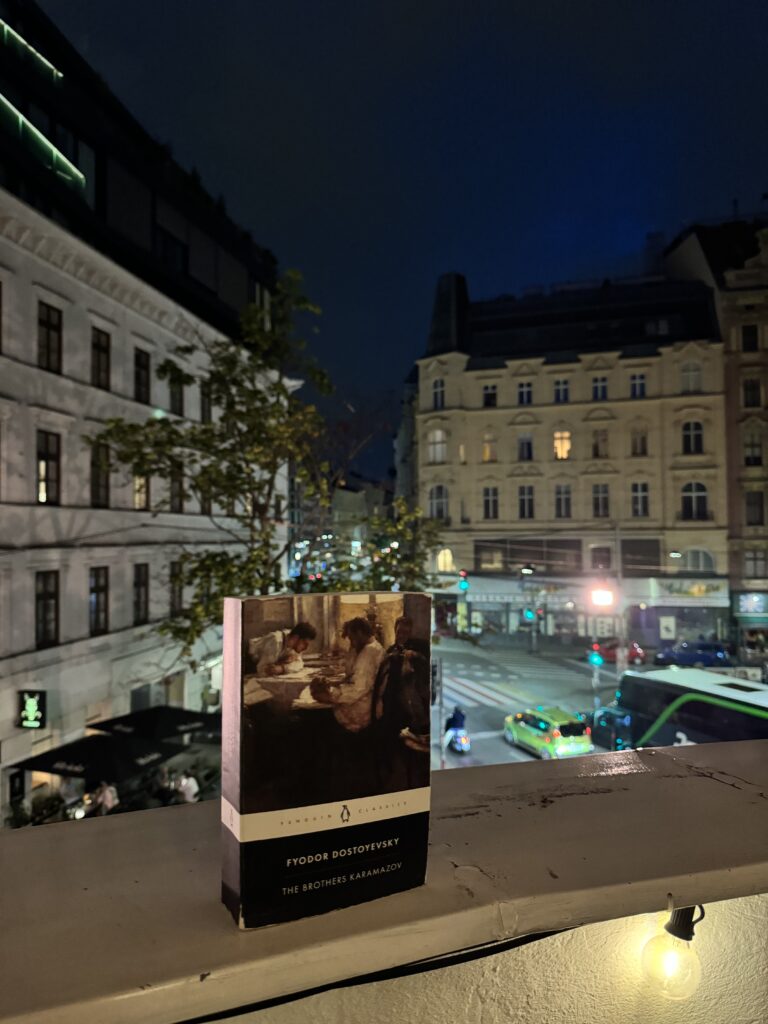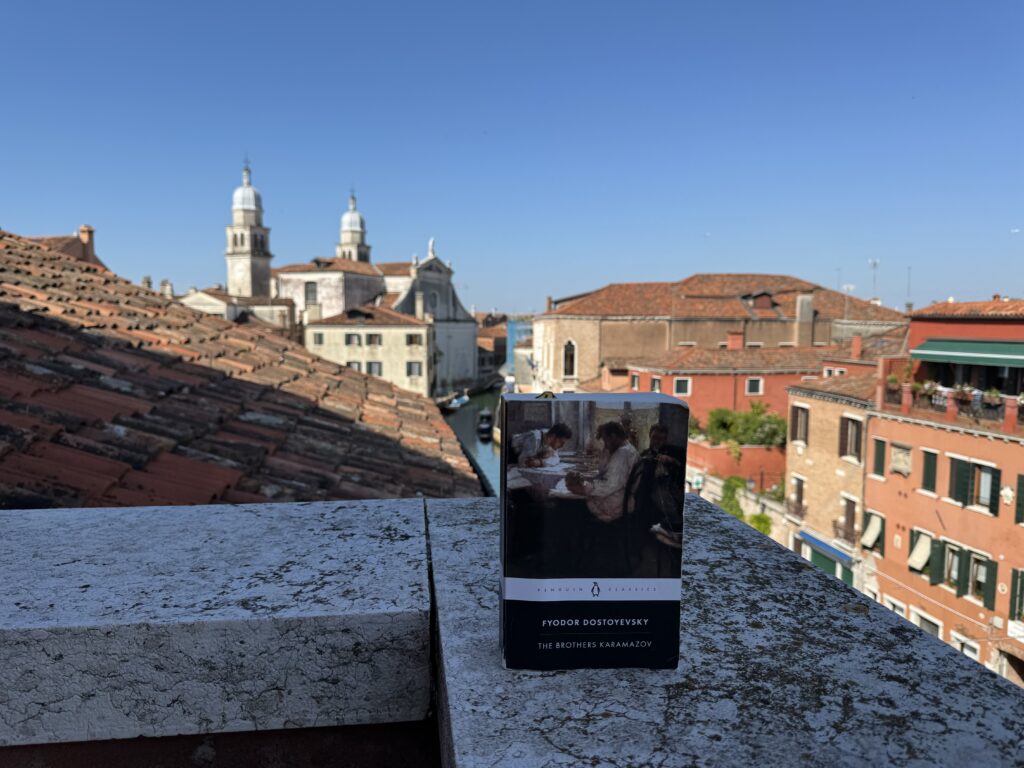Fyodor Dostoevsky’s “The Brothers Karamazov,” first published in 1880, stands as a towering work of literature that delves deep into the complexities of human nature, faith, and morality. This monumental novel, Dostoevsky’s final and arguably greatest work, intertwines philosophical discourse with a gripping narrative, presenting a profound exploration of the human condition
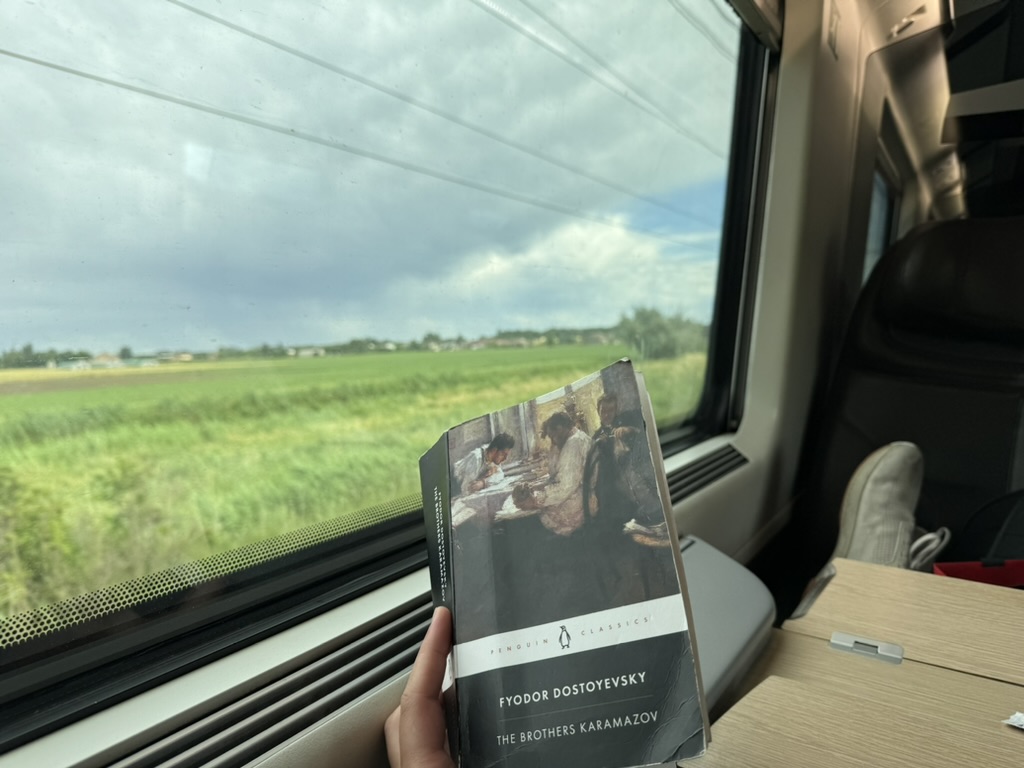
Set in 19th-century Russia, the novel follows the tumultuous lives of the Karamazov brothers—Dmitri, Ivan, and Alyosha—and their dysfunctional father, Fyodor Pavlovich Karamazov. The plot is catalyzed by a fierce conflict over their father’s inheritance, but it swiftly evolves into a much broader examination of existential and ethical dilemmas.
Dmitri, the passionate and impulsive eldest, is embroiled in a bitter struggle with his father over money and the love of a woman, Grushenka. Ivan, the intellectual middle brother, grapples with profound philosophical and theological questions, particularly the existence of God and the problem of evil. Alyosha, the youngest, is a devout and spiritual seeker, whose faith contrasts starkly with his brothers’ skepticism and moral turmoil. The narrative crescendos with a dramatic murder trial that forces each brother to confront his own beliefs and moral convictions.
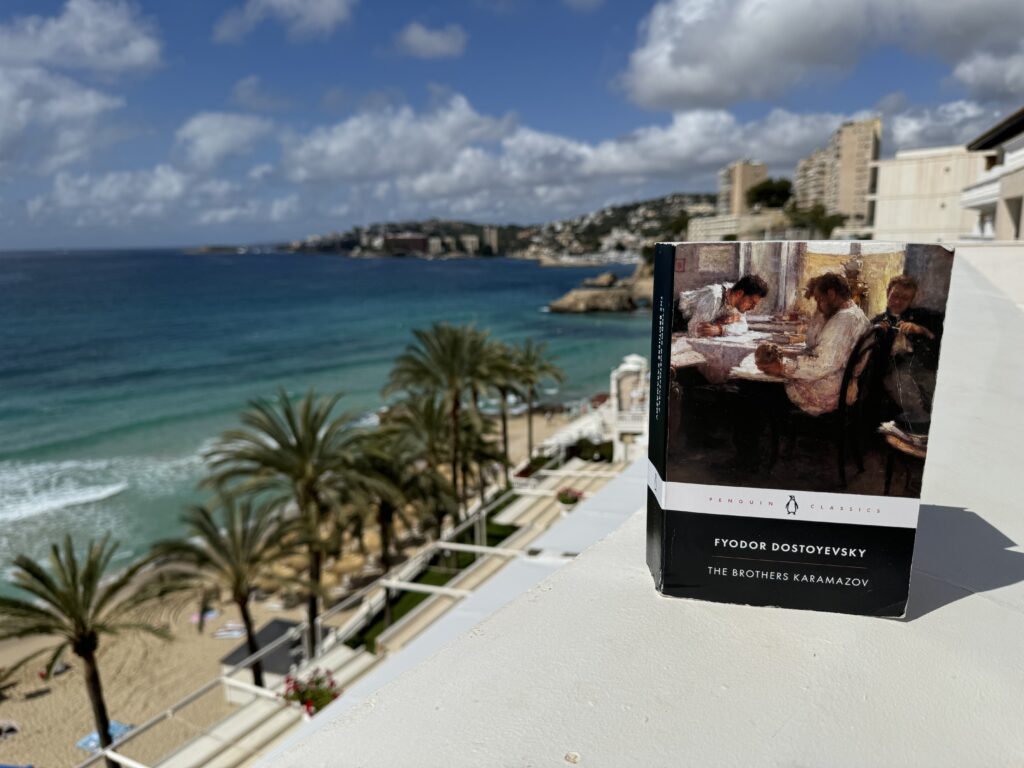
At its core, “The Brothers Karamazov” is a profound exploration of faith, doubt, and the search for meaning. Dostoevsky masterfully employs the characters as vessels for his philosophical inquiries. Ivan’s famous “Rebellion” and “The Grand Inquisitor” chapter serve as powerful critiques of religious and moral systems, questioning the nature of human suffering and the justice of a divine order. In contrast, Alyosha’s unwavering faith provides a counterpoint to Ivan’s cynicism, presenting a more hopeful perspective on human nature and spirituality.
The novel also delves into the theme of free will versus determinism, examining how personal responsibility and choice shape moral behavior. Dostoevsky’s psychological insight into his characters—especially the troubled and complex Dmitri—reveals the often conflicting motivations that drive human actions, making them both relatable and profoundly tragic.

Dostoevsky’s characters are vividly drawn, each embodying different facets of the human experience. Dmitri’s raw emotionality, Ivan’s intellectual rigor, and Alyosha’s spiritual purity are depicted with depth and nuance. Fyodor Pavlovich, the lecherous and selfish patriarch, acts as a catalyst for the novel’s central conflicts, his own flaws serving as a mirror to his sons’ struggles.
The novel’s style is reflective of Dostoevsky’s broader literary techniques—rich in dialogue, dense with psychological insight, and marked by a complex narrative structure. While the prose can be intricate and challenging, the rewards are immense for readers willing to engage deeply with the text. Dostoevsky’s use of unreliable narrators and shifting perspectives adds layers of complexity, inviting readers to question the nature of truth and perception.
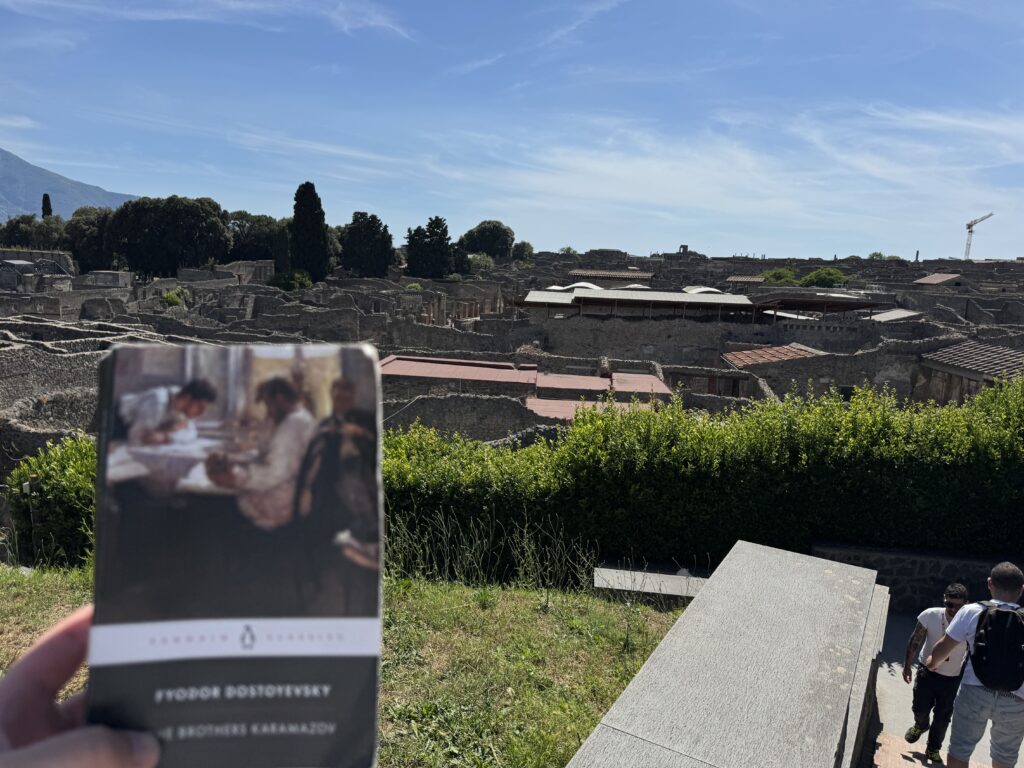
“The Brothers Karamazov” is a monumental achievement that combines a gripping narrative with profound philosophical inquiry. Its exploration of themes such as faith, morality, and free will ensures its place as a seminal work in world literature. Dostoevsky’s masterful characterizations and intricate plot make it a challenging yet immensely rewarding read. For those willing to wrestle with its ideas and complexities, “The Brothers Karamazov” offers a timeless and transformative experience, reflecting the depth and breadth of the human soul. Dostoevsky’s final novel remains a cornerstone of literary and philosophical thought, challenging readers to confront the most fundamental questions of existence and morality and for this earns a perfect 10/10 on the Fletcher Dilmore Book Review Scale.
To Purchase a Copy of the book, Click Here
